KAHRAMANMARAS, Turkey—A week after the earthquakes, the streets had gone still. Survivors with means had left for safer ground. Television crews no longer roved the rubble-lined roads, and rescue teams had all but abandoned the search for life. Yet in the quiet wreckage, smatterings of construction workers were just beginning their efforts to give one final kindness to the disaster’s victims: the dignity of a proper burial.
“In this area we had seven dead people,” Sedat Kısaer, an engineer, said Monday, gesturing to what used to be a multistorey apartment building in this city of 400,000. “We were able to extract four people. We have three people still. We wish to bring them out in one piece.” A successful retrieval is the best that family members can hope for as they sit watching the bulldozers pick apart a mountain of concrete and tangled rebar.
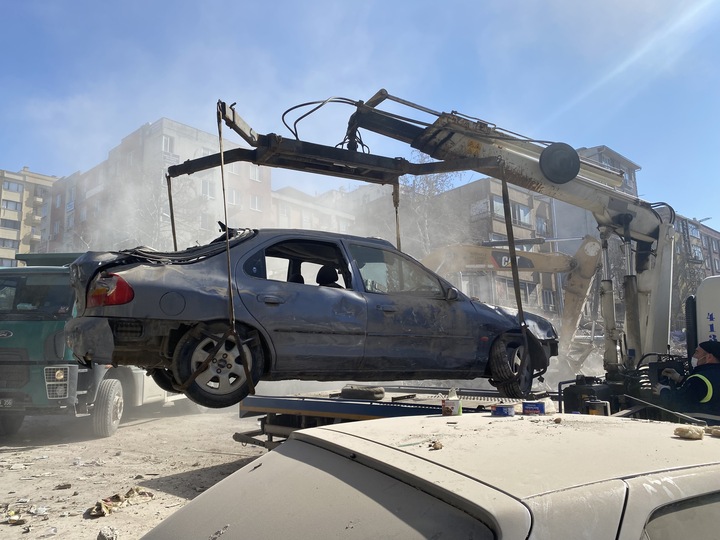
Similar work is underway across the city, which is sandwiched between the epicenters of the massive earthquakes that devastated stretches of Turkey and Syria this month.
“We don’t understand the magnitude of this event. We are still confused. We don’t know what can be done,” Mehmet Türk, a health care worker in Kahramanmaraş, said Monday. “We have to be prepared for future earthquakes.”
Portions of the Kahramanmaraş province and at least nine other Turkish regions now lie in ruin. At least 35,000 people—and likely many, many more—have died in Turkey alone. Millions of others have been displaced by the worst natural disaster modern Turkey has ever experienced.
President Recep Tayyip Erdoğan has been at the center of Turkish politics for two decades, and he has been at the center of this crisis too. When he visited survivors at an encampment in a Kahramanmaraş stadium last week, he brought a message of deflection. While there were “shortcomings” in the country’s preparedness for the tremor, he conceded in a speech, “it’s not possible to be ready for a disaster like this.” The unfolding tragedy was part of “fate’s plan,” Erdoğan added, vowing the region would rebuild stronger.
Presidential and parliamentary elections will take place in about three months, but Turkey’s road to recovery will last much longer than the campaign season.
At least 41,000 buildings have been destroyed or severely weakened, Turkish Environment Minister Murat Kurum said Monday. This is likely an underestimate: Locals are concerned that, despite the high risk of future seismic activity, the ongoing inspections of buildings still standing have been cursory at best. One Gaziantep resident said authorities have recruited inexperienced architecture students to help them assess the damage, a massive undertaking expected to take weeks.
That’s for people who have a house left to inspect. Abdulrahman Almuhemeed was trapped under the rubble of his apartment building in Gaziantep, a city of some 2 million, for more than an hour after the first earthquake struck. “Thirteen seconds,” the father of two said Sunday—that’s how long it took the tremor to flatten his home. The disaster left him displaced yet again after fleeing the war in his home country of Syria six years ago. Countless others share his plight in the affected parts of southern Turkey, which is near the border and home to the majority of the country’s nearly 4 million Syrian refugees.
“Nothing has ever happened of this intensity and magnitude,” said Mücahit Yılmaz, an emergency medical technician in the hard-hit city of Nurdağı, describing the difficulty of reaching survivors through the wreckage.
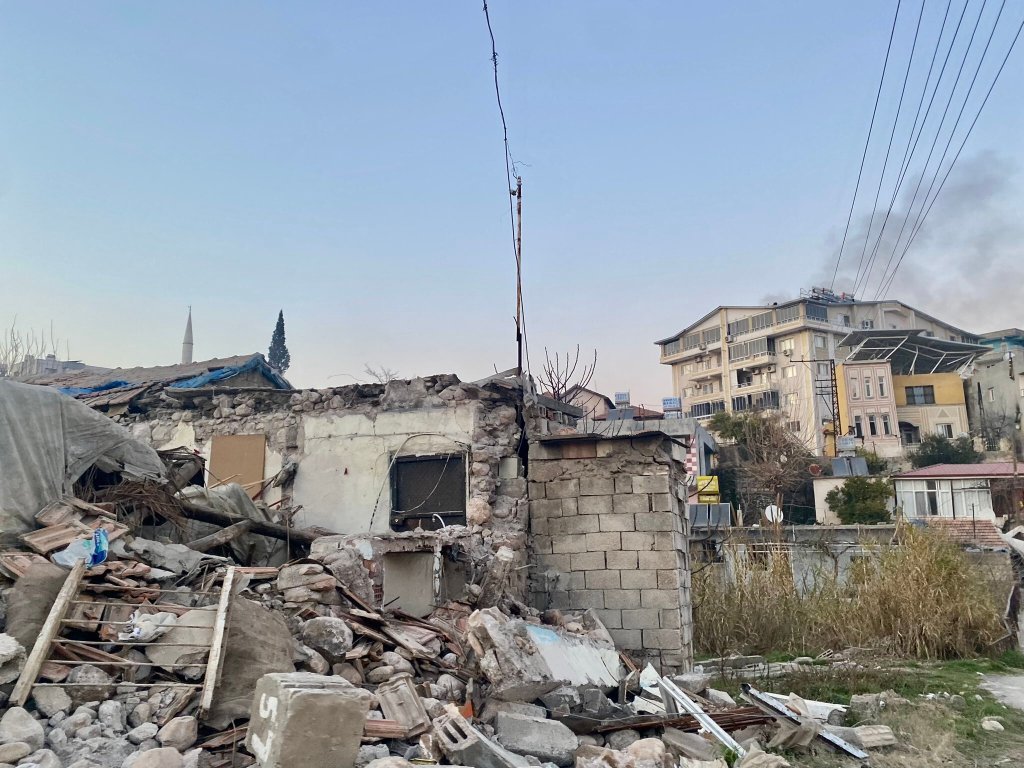
Parts of Turkey have long been at heightened risk for a high-casualty seismic event. Yet Erdoğan’s critics say his government did little to prepare for what inevitably came to pass. In 1999 an earthquake in western Turkey killed more than 17,000, setting off a nationwide push to demolish old construction and rebuild earthquake resistant buildings. Except many pre-1999 buildings in the poorer south remained, and many new buildings weren’t built to withstand the tremor.
Erdoğan’s political rivals say shoddy new construction—encouraged by the president and his ruling Justice and Development Party (AKP)—is in part to blame for the disaster. A recently resurfaced video from 2019 shows Erdoğan touting new construction in Kahramanmaraş following the passage of a law allowing contractors to pay a fee to spare their unlicensed buildings from demolition. “We solved the problem of 144,156 citizens of Maraş with zoning amnesty,” he said of the housing projects, some of which were destroyed in the quakes.
If the aftermath of these earthquakes is anything like the one in 1999, it could undercut the legitimacy of his strongman governance at a pivotal moment.
“The biggest similarity between the earthquake of 1999 and this week’s disaster is that they might serve as bookends for two regimes,” said Soner Cagaptay, director of the Turkish Research Program at The Washington Institute for Near East Policy. “The fact that relief has been coming in late might eventually destroy the image of Erdoğan the powerful leader, the administrator, the new sultan that Erdoğan has cultivated for about 20 years.”
Erdoğan maintains that the real culprits are corporate greed and fate rather than bad governance. Public prosecutors have reportedly begun to take legal action against contractors involved in the development of razed buildings, and the president vowed to begin the construction of 30,000 “high-quality, safe” buildings next month.
But for people in the disaster zone, survival takes priority over reconstruction. Many displaced families have nowhere to go for fear of returning to potentially dangerous buildings as frequent aftershocks continue to rattle the area. “There is damage to the house and I’m very scared and afraid to enter,” Omer Yogun, a student in Gaziantep who drives passengers in his taxi during the day and sleeps in it at night, told me Sunday. “I have no home. We’re in my home.”
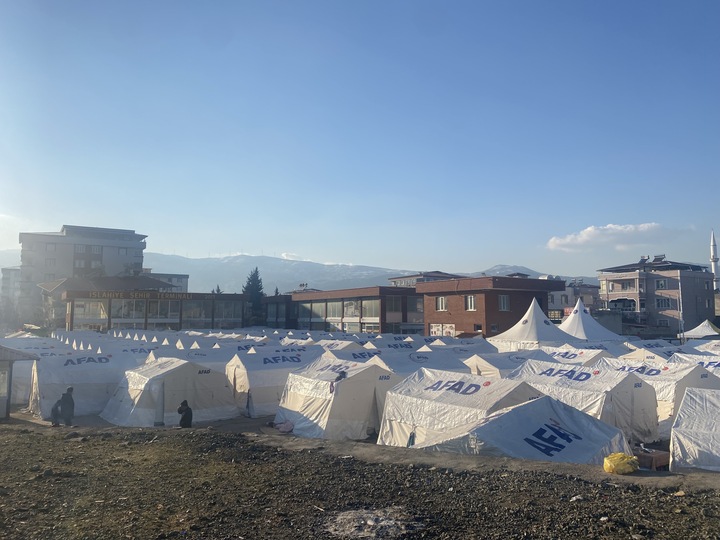
Others are staying on the ground floor of mosques and in tents. These temporary arrangements are increasingly untenable as Turkey experiences a cold spell, with temperatures in the affected areas dropping well below freezing at night. In some areas the Turkish government’s disaster response agency, AFAD, has set up vast tent cities for survivors complete with clothes distribution, food stations, mobile bathrooms, medical care, and other essentials.
“We have everything. Thank God,” said Fatima Huskol, a headscarved woman at the Kahramanmaraş camp where Erdoğan spoke. “Sometimes we cannot find enough clothes, but we thank them so much and we are praying—we are praying for them. We thank the government because they have done a lot for us.”
Ibrahim Atılgan, a man at an AFAD camp in Islahiye, shared a similar experience. “On the first day there was little,” he said. “Now everything is supplied.” Sonar Özkalender, an AFAD volunteer, said that his team had a surplus within 48 hours because of an outpouring of support across Turkey and the world.
Elsewhere, particularly on the periphery and outside of cities and towns, sufficient aid has not arrived. In one mosque on the outskirts of Gaziantep, some 300 forgotten men, women, and children are sleeping on the floor and relying on the generosity of their neighbors for vital supplies. One of them is Nour Hammoud, a local widow who has been leading the effort to secure food, water, and medication for the improvised shelter.
“We keep getting stuff, little by little, but it’s not enough. For example, I get certain medications when there is need. We get food when there is need. We get diapers and other supplies when we need,” she said Monday. “The most important thing is to have a continuous supply of meals, at least once a day, but in an organized way. Because we are getting help by calling people, it’s random. We need something organized to feel safe.”
Hammoud has also recruited volunteers to care for about a dozen children tucked away in the front room of the mosque, some orphaned and some with severe medical conditions including osteopenia, hydrocephalus, and kidney failure. When I visited the site on Monday with Abdulrahman Zarka, a fourth-year medical student in Gaziantep, one young child was almost out of his medication for epilepsy. Zarka was able to track down and deliver new doses the next day.
“If you have 1,000 people of course you will find them. But if there are 10 people a little bit far away, no one will see them,” he said. “And they really need help.”
Zarka and Hammoud are among the many good Samaritans stepping up to fill the gap left by what some survivors described as a deficient government response in the earthquakes’ aftermath.
“From the country, from the municipalities, nothing is coming. Only the good people—they’re bringing supplies and we’re buying stuff with our own money,” Mustafa Mahmoud Taous, a young man staying outside of a different mosque in Gaziantep, said Sunday. “Sometimes aid comes but it’s finished quickly. Only one percent is distributed and then the rest is gone.”
“We’ve seen nothing,” said Ibrahim, a Syrian father of five at a tent nearby. “We’re only asking for aid, and the kids are asking for their own food.”
As of Sunday some 600 people were staying in the mosque and surrounding tent city, cobbled together from makeshift shelters in a poor neighborhood of Gaziantep. “Everyone is panicking. Many people have constructed their own tents,” said Hüseyin Yılmaz, the mosque’s imam, who insisted that aid was being distributed. “People are always needing more things.”
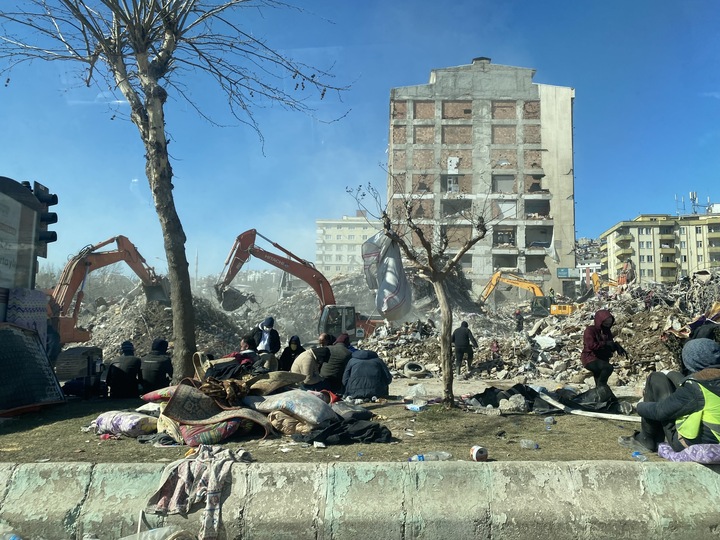




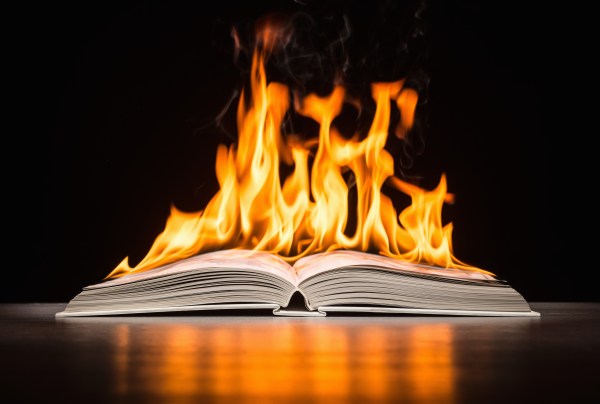
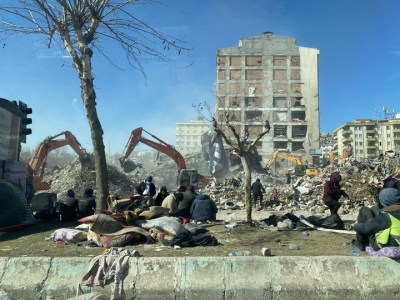
Please note that we at The Dispatch hold ourselves, our work, and our commenters to a higher standard than other places on the internet. We welcome comments that foster genuine debate or discussion—including comments critical of us or our work—but responses that include ad hominem attacks on fellow Dispatch members or are intended to stoke fear and anger may be moderated.
With your membership, you only have the ability to comment on The Morning Dispatch articles. Consider upgrading to join the conversation everywhere.